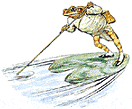| Tweet |
(回答先: イラン大統領選挙:西側機関による事前の世論調査でもアフマディネジャッドの圧勝 投稿者 バルセロナより愛を込めて 日時 2009 年 6 月 18 日 06:40:42)

ワシントン・ポスト紙のサイトにも15日付けで
Ken Ballen and Patrick Doherty - Polling in Iran Shows Real Support for Ahmadinejad
という記事が出ていました。筆者はTerror-Free Tommorow会長のKen Ballenと「新アメリカ財団」のPatrick Dohertyという人です。
http://www.washingtonpost.com/wp-dyn/content/article/2009/06/14/AR2009061401757.html
The Iranian People Speak
By Ken Ballen and Patrick Doherty
Monday, June 15, 2009
The election results in Iran may reflect the will of the Iranian people. Many experts are claiming that the margin of victory of incumbent President Mahmoud Ahmadinejad was the result of fraud or manipulation, but our nationwide public opinion survey of Iranians three weeks before the vote showed Ahmadinejad leading by a more than 2 to 1 margin -- greater than his actual apparent margin of victory in Friday's election.
While Western news reports from Tehran in the days leading up to the voting portrayed an Iranian public enthusiastic about Ahmadinejad's principal opponent, Mir Hossein Mousavi, our scientific sampling from across all 30 of Iran's provinces showed Ahmadinejad well ahead.
Independent and uncensored nationwide surveys of Iran are rare. Typically, preelection polls there are either conducted or monitored by the government and are notoriously untrustworthy. By contrast, the poll undertaken by our nonprofit organizations from May 11 to May 20 was the third in a series over the past two years. Conducted by telephone from a neighboring country, field work was carried out in Farsi by a polling company whose work in the region for ABC News and the BBC has received an Emmy award. Our polling was funded by the Rockefeller Brothers Fund.
The breadth of Ahmadinejad's support was apparent in our preelection survey. During the campaign, for instance, Mousavi emphasized his identity as an Azeri, the second-largest ethnic group in Iran after Persians, to woo Azeri voters. Our survey indicated, though, that Azeris favored Ahmadinejad by 2 to 1 over Mousavi.
Much commentary has portrayed Iranian youth and the Internet as harbingers of change in this election. But our poll found that only a third of Iranians even have access to the Internet, while 18-to-24-year-olds comprised the strongest voting bloc for Ahmadinejad of all age groups.
The only demographic groups in which our survey found Mousavi leading or competitive with Ahmadinejad were university students and graduates, and the highest-income Iranians. When our poll was taken, almost a third of Iranians were also still undecided. Yet the baseline distributions we found then mirror the results reported by the Iranian authorities, indicating the possibility that the vote is not the product of widespread fraud.
Some might argue that the professed support for Ahmadinejad we found simply reflected fearful respondents' reluctance to provide honest answers to pollsters. Yet the integrity of our results is confirmed by the politically risky responses Iranians were willing to give to a host of questions. For instance, nearly four in five Iranians -- including most Ahmadinejad supporters -- said they wanted to change the political system to give them the right to elect Iran's supreme leader, who is not currently subject to popular vote. Similarly, Iranians chose free elections and a free press as their most important priorities for their government, virtually tied with improving the national economy. These were hardly "politically correct" responses to voice publicly in a largely authoritarian society.
Indeed, and consistently among all three of our surveys over the past two years, more than 70 percent of Iranians also expressed support for providing full access to weapons inspectors and a guarantee that Iran will not develop or possess nuclear weapons, in return for outside aid and investment. And 77 percent of Iranians favored normal relations and trade with the United States, another result consistent with our previous findings.
Iranians view their support for a more democratic system, with normal relations with the United States, as consonant with their support for Ahmadinejad. They do not want him to continue his hard-line policies. Rather, Iranians apparently see Ahmadinejad as their toughest negotiator, the person best positioned to bring home a favorable deal -- rather like a Persian Nixon going to China.
Allegations of fraud and electoral manipulation will serve to further isolate Iran and are likely to increase its belligerence and intransigence against the outside world. Before other countries, including the United States, jump to the conclusion that the Iranian presidential elections were fraudulent, with the grave consequences such charges could bring, they should consider all independent information. The fact may simply be that the reelection of President Ahmadinejad is what the Iranian people wanted.
Ken Ballen is president of Terror Free Tomorrow: The Center for Public Opinion, a nonprofit institute that researches attitudes toward extremism. Patrick Doherty is deputy director of the American Strategy Program at the New America Foundation. The groups' May 11-20 polling consisted of 1,001 interviews across Iran and had a 3.1 percentage point margin of error. For more on polling in Iran, read Jon Cohen's Behind the Numbers.
投稿コメント全ログ コメント即時配信 スレ建て依頼 削除コメント確認方法
 題名には必ず「阿修羅さんへ」と記述してください。
題名には必ず「阿修羅さんへ」と記述してください。
掲示板,MLを含むこのサイトすべての
一切の引用、転載、リンクを許可いたします。確認メールは不要です。
引用元リンクを表示してください。